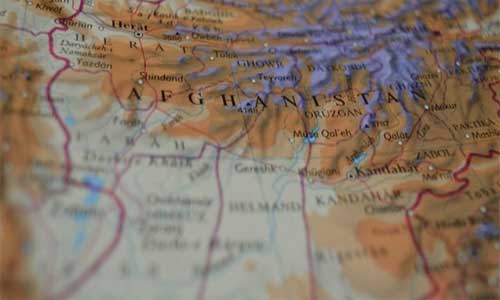After emergence of hot war deterrent factors like mutual assured destruction (MAD), the hot war has largely replaced with cold war amongst top world powers. The first cold war began after development and uses of atomic weapons during the Second World War and it ended with collapse of Soviet Union and victory of America in 1991. Since then the US has been the top world power in a Uni-multi-polar system. In recent years with emergence China as economic power, once again the term “Second cold war” or “new cold war” has been used to describe the new cold war between the United States and China. The new cold war between the two countries has been increasing in recent years but it intensified after Mr. Trump won the US election in 2016. He came to power with accusations that China was exploiting the country’s trade relationship with the United States by selling the country far more than it purchased. Therefore, he decreed a series of punitive tariffs on Chinese goods, and China retaliated, in a trade war that has now lasted more than two years. Initially the tension between the two countries was described under trade war but it has expanded to different parts of two country’s relations such as technology, media, health and so forth. As a result, Americans increasingly believe that Beijing is threatening the U.S. security interests, undermining its prosperity, interfering in its democracy, and challenging its values. Mr. Trump and his subordinates have also blamed China for spreading the corona virus, which first emerged in the central Chinese city of Wuhan late last year. They have repeatedly described the virus in racist and stigmatizing terms, calling it the Wuhan virus, Chinse virus and Kung Flu. China was also accused for attempting to steal information about American research on a virus vaccine. On the other hand, China has not only rejected the administration’s attacks over the virus but has also criticized the poor American government response to the outbreak. In response to the US repeated accusations for virus spread, China has also said that American soldiers may have been the original source of the virus during a visit to Wuhan last October.
In parts of technology, China has long been accused that it was stealing American technology. The Trump White House has escalated the accusations further by seeking an international blacklisting of Huawei, China’s largest technology company, calling it a front for China’s efforts to infiltrate the telecommunications infrastructure of other nations for strategic advantage. The company’s chief financial officer, Meng Wanzhou, was detained in December 2018 in Canada on an extradition warrant to the United States on fraud charges. Accordingly, the Trump administration has taken steps to cancel the visas of thousands of Chinese graduate students and researchers in the United States who have direct ties to universities. Such expulsions portend possible further educational restrictions, and the Chinese government could retaliate by imposing its own visa bans on Americans.
In field of human rights, the Trump administration imposed sanctions on a number of Chinese officials, including a senior member of the Communist Party, over human rights abuse by China in the Xinjiang region against the country’s largely Muslim Uighur minority. Beijing promised retaliation against American institutions and individuals it deemed guilty of “egregious” conduct in issues concerning Xinjiang, a vast Western expanse in China where the authorities have reportedly placed a million people in labor camps and imposed intrusive surveillance on others.
In addition, the Trump administration has increasingly challenged China’s assertions of sovereignty and control over much of the South China Sea, including vital maritime shipping lanes. Recently, Secretary of State Mike Pompeo, who has described China as a major security threat, decreed that most of China’s claims in the South China Sea are completely unlawful setting up potential military confrontations between Chinese and U.S. naval forces in the Pacific. For the Chinese government, American positions and actions taken in the name of defending people living anywhere in China constitute blatant interference in its internal politics a grievance with deep-seated roots going back to its struggles with imperialist powers in the 19th century.
As abovementioned, the tensions between the two countries cover a wide range of subjects such as defense, trade, technology, human rights and other categories which not only impact the relation between the two countries but also regional countries. In Afghanistan, as the tensions increased between the two countries, the questions and concerns raised as what effect it would leave on the situation of Afghanistan, especially on peace process. Accordingly, there are questions that what changes will occur in the polarizations of the region and the world? For example, what will happen on regional rivalries between the United States and Russia, the serious animosity between the United States and Iran, the close relations between Iran and Russia and Iran and China, especially after the recent billion-dollar agreement, can change the entire political situation and interactions in the region. Recently, one of the US top officials called Iran as non-cooperative and as one of the obstacles against peace talks in Afghanistan, but Iran abruptly rejected the allegation. However, the blame game between the two countries is not new phenomena as the two countries have repeatedly blamed each and other for supporting radical groups and wickedness in the region. Now, if Russia, China and others stand alongside each and other, undoubtedly they are able to challenge the peace process in the country.
Home » Opinion » The Second Cold War and Its Impact on Region and Afghanistan
The Second Cold War and Its Impact on Region and Afghanistan
| Mohammad Zahir Akbari

